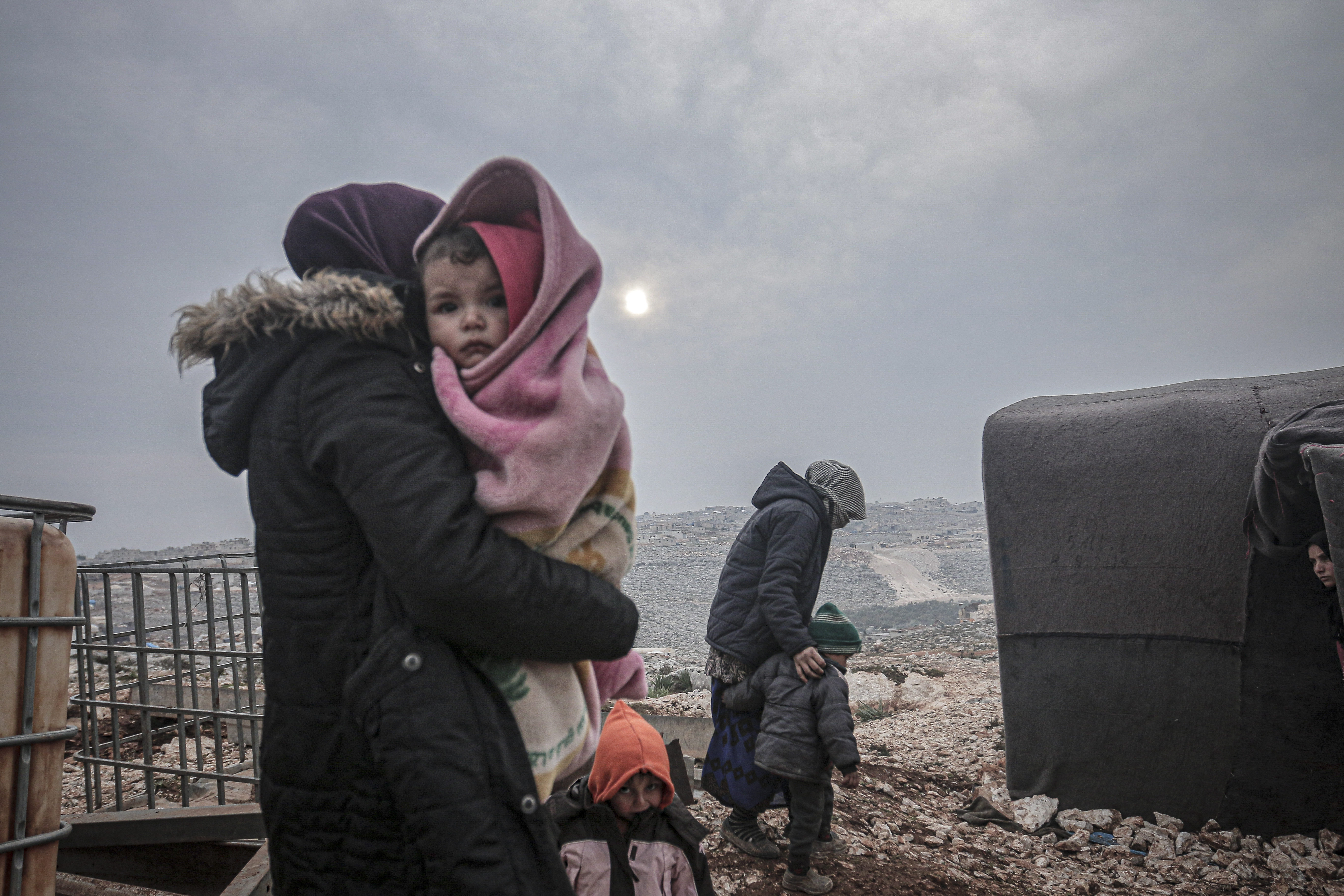Syrians are the largest refugee population in the world.

Syrian families, who have been forcibly displaced due to the ongoing attacks are seen at a camp in Turmanin in the western rural of Aleppo near Turkish border on a cold winter day in Idlib, Syria. ©Ritzau Scanpix
As the Syrian crisis enters its tenth year, the Syrian people continue to experience acute tragedy. Every second Syrian man, woman and child has been forcibly displaced since the start of the conflict in March 2011 – often, more than once. Today, Syrians are the largest refugee population in the world.
Year after year, the Syrian people have also shown incredible resilience. While the majority of refugees in neighboring countries live below the poverty line, they also strive to make a living and create a future for themselves and their families; looking to return home but contributing to the economies of the countries who generously host them, while they stay. In North-West Syria, fighting has tragically led to almost a million people displaced since December 2019, living in terrible conditions; at the same time, in other parts of the country, many families and communities are trying to rebuild their lives, and move on, despite widespread disruption of services, destruction of property and economic hardship.
The last nine years have also been a story of remarkable solidarity. The governments and people of Turkey, Lebanon, Jordan, Iraq, Egypt, as well as some countries beyond the region, have provided Syrians protection and safety, opening up their schools, hospitals and their homes to Syrian refugees.
The international aid response has expanded in scale and depth over the last ten years, thanks to generous contributions by government donors, the private sector and individuals. What started as a humanitarian response has been matched by the engagement of key development actors, such as the World Bank, providing structured support to host governments and institutions, bolstering the resilience of both host communities and refugees. Over US$14 billion has been channeled through the Regional Refugee Response and Resilience Plan (3RP) since 2012 and delivered by a coalition of over 200 partners, coordinated by UNHCR and UNDP. Much more has been provided through bilateral aid and other multilateral mechanisms.
“I’m deeply humbled by the courage and resilience of Syrians. Day in, day out, they have faced suffering and deprivation,” said Grandi. “As this crisis moves into its tenth year, I urge the world not to forget those who remain displaced in Syria, and those who have been forced to flee abroad. We must recognize and support the generosity of the neighbouring countries – one of the greatest acts of solidarity in decades. However, we must stay the course. More is needed.”
Indeed, nine years in, the challenge has been to maintain and expand support to the region, especially in a time where host communities, for instance in Lebanon, live through economic hardship. The Regional Refugee Response and Resilience Plan (3RP) for 2019 has received 58 per cent funding against a US$5.4 billion appeal. The gap between actual needs and available resources is widening by the day. Lack of aid, limited access to health services and education increase daily costs and risk pushing refugee families into an irreversible spiral of vulnerability. Out of desperation, some refugees are forced to take their children out of school to work and support their families. Others reduce their daily meals. Vulnerable to exploitation and abuse, some turn to the streets, early marriages, or child labour.
Nine years of crisis have left a mark across the entire region. Host countries remain in need of predictable and timely financing to enable them to continue to support millions of Syrian refugees, to ensure national services are able to cope, and to expand opportunities for both refugees and host communities. Support is also needed for those who wish to exercise their right to return home. The Global Compact on Refugees, endorsed by the UN in December 2018, offers to governments and private sector a blueprint for the whole of society approach to refugee crises through a more predictable response and equitable responsibility-sharing. Syrian refugees and their hosts depend on it.
For more information on this topic, please contact:
Share on Facebook Share on Twitter